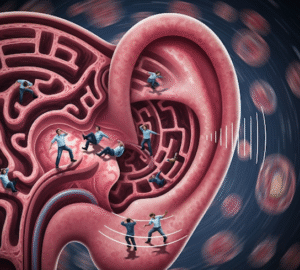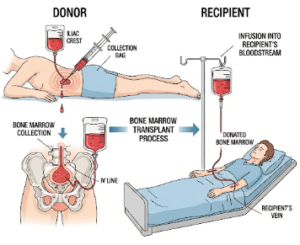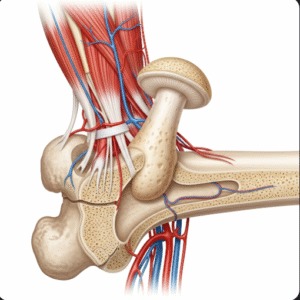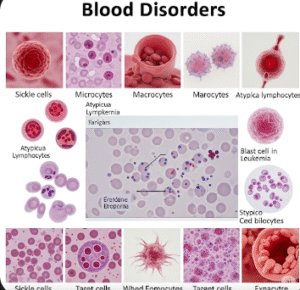Overview
Partial seizures, also called focal seizures, are seizures that originate in a specific area of one cerebral hemisphere in the brain. Unlike generalized seizures, which affect both sides of the brain at once, partial seizures begin locally and may remain confined or spread to other brain regions. These seizures can cause a wide range of symptoms depending on the brain area involved, and they are among the most common types of epilepsy.
South Korea offers advanced neurological services for diagnosis and treatment of partial seizures, utilizing state-of-the-art EEG monitoring, neuroimaging, and personalized treatment plans.
What is Partial Seizure?
A partial seizure is a sudden, abnormal electrical discharge in a limited area of the brain. They are categorized as:
- Simple partial seizures: Consciousness is preserved; symptoms are limited to motor, sensory, autonomic, or psychic features.
- Complex partial seizures: Impaired consciousness or awareness, often with automatisms like lip-smacking or repetitive movements.
- Partial seizures evolving to secondary generalized seizures: Begin focally but spread to involve both hemispheres causing convulsions.
Partial seizures can affect various brain functions depending on the affected lobe — such as movement, sensation, emotions, or memory.
Symptoms
Symptoms vary widely but may include:
- Sudden jerking or twitching of a limb or part of the body
- Unusual sensations (tingling, numbness, or “pins and needles”)
- Visual, auditory, or olfactory hallucinations
- Sudden feelings of fear, anxiety, or déjà vu
- Repetitive behaviors or automatisms (e.g., chewing, lip-smacking)
- Altered awareness or confusion (in complex partial seizures)
- Temporary inability to speak or understand language
- Headache or dizziness
The duration typically ranges from seconds to a few minutes.
Causes
Partial seizures can arise from many causes, including:
- Structural brain abnormalities (e.g., tumors, stroke, trauma)
- Infections such as meningitis or encephalitis
- Developmental brain malformations
- Genetic epilepsy syndromes
- Scar tissue from previous brain injury or surgery
- Brain degeneration or neurodegenerative diseases
- Metabolic disturbances (e.g., low blood sugar, electrolyte imbalance)
Risk Factors
Risk factors for partial seizures include:
- History of head injury or brain trauma
- Brain infections or inflammation
- Stroke or cerebrovascular disease
- Family history of epilepsy
- Previous brain surgery
- Neurodevelopmental disorders
- Exposure to toxins or drug abuse
Early diagnosis and treatment can reduce complications.
Complications
If untreated or poorly controlled, partial seizures can lead to:
- Progression to generalized seizures
- Risk of status epilepticus, a prolonged seizure emergency
- Injury during seizures (falls, accidents)
- Cognitive decline or memory problems
- Emotional issues such as anxiety and depression
- Social isolation and reduced quality of life
Prevention
Prevention strategies focus on managing underlying causes and avoiding seizure triggers:
- Prompt treatment of brain infections or injuries
- Avoiding seizure triggers like sleep deprivation, alcohol, or flashing lights
- Taking antiepileptic medications as prescribed
- Managing chronic conditions such as stroke or tumors
- Using protective gear to prevent head injuries
- Regular neurological checkups for at-risk individuals
Treatment Options in Korea
South Korea provides comprehensive care for patients with partial seizures, including:
1. Diagnostic Evaluation
- Electroencephalogram (EEG), including video EEG monitoring
- MRI and CT scans to identify structural brain abnormalities
- Neuropsychological testing to assess cognitive function
2. Medical Treatment
- Antiepileptic drugs (AEDs) tailored to seizure type (e.g., carbamazepine, levetiracetam, lamotrigine)
- Careful monitoring of medication effects and adjustments
- Treatment of underlying causes when applicable
3. Surgical Treatment
- For drug-resistant cases, epilepsy surgery (e.g., resection of seizure focus)
- Responsive neurostimulation (RNS) or vagus nerve stimulation (VNS) as alternatives
4. Supportive Therapies
- Counseling and psychological support
- Lifestyle advice including sleep hygiene and stress management
- Education about seizure first aid for patients and families
5. Leading Hospitals and Clinics
- Severance Hospital (Yonsei University)
- Samsung Medical Center
- Asan Medical Center
- Seoul National University Hospital (SNUH)
These centers offer expert neurologists, advanced diagnostics, and personalized epilepsy care.













